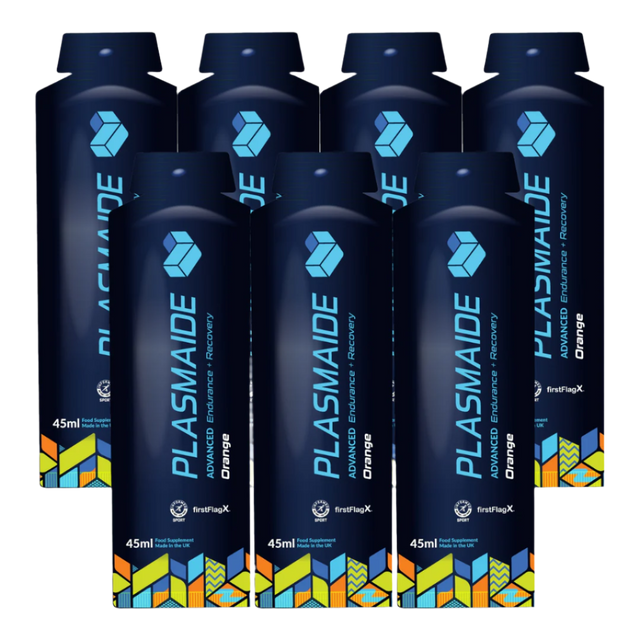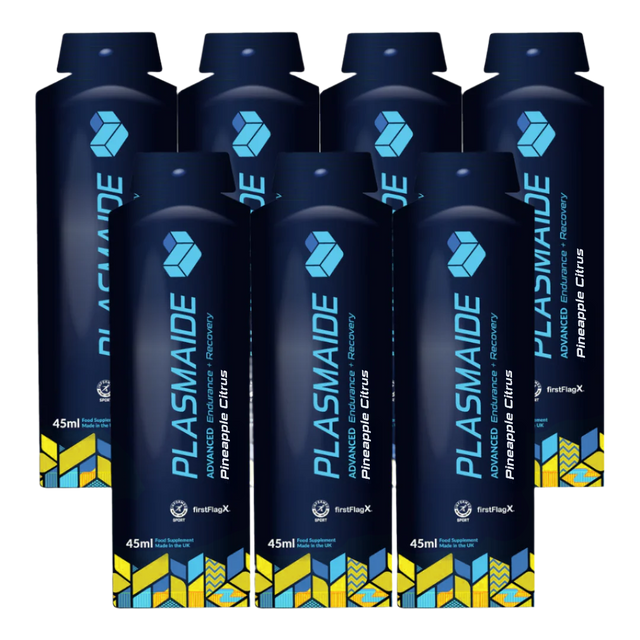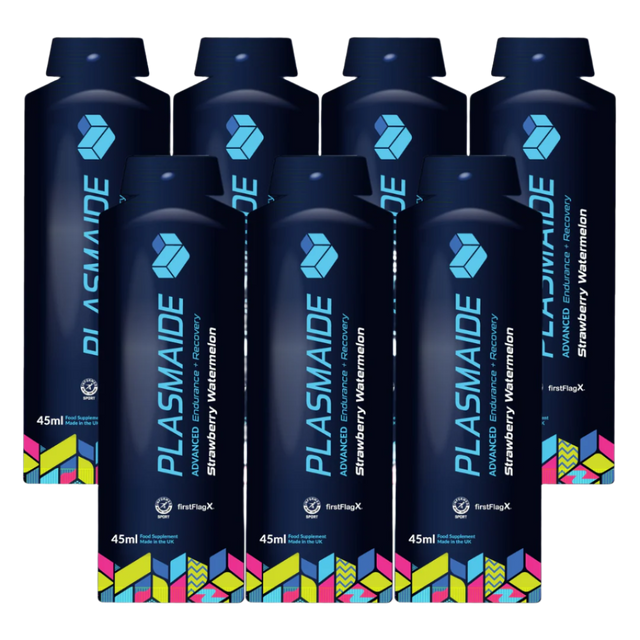Inside Plasmaide: 10 Potential Benefits of French Maritime Pine Bark
If you're into endurance sports, you've probably seen Plasmaide's fun ads. They do a great job of explaining their product through the media. It looks like an energy gel, but it’s not! So, what is Plasmaide actually made of?
What is Plasmaide?
Plasmaide is a plant based liquid blend that uses pinus pinaster stem bark extract (French maritime pine bark), a source of polyphenols. Try saying that 5 times! Polyphenols are known to help widen blood vessels that results in increased blood flow1. Plasmaide is an adaptogen or adaptogenic supplement for pre and post activity use only and not intended to be used during activity. Although it looks like a gel, it is not an energy gel.
The Science Behind This Plant-Based Performance Booster
French maritime pine bark has been studied to;
-
Assist with blood circulation
-
Enhance endothelial function
-
Reduce inflammation
-
Enhance endurance performance
-
Physical strength
-
Increase time to fatigue in endurance events
-
Reduce daily oxidative tissue damage
-
Reducing pain and cramps
-
Decrease lactate concentration and
-
Support recovery through the presence of antioxidants 1,2,3,4,5,6,7,8
In summary supplementation with Plasmaide along with proper hydration, good training and nutritional attention may improve training and performance as well as reduce oxidative stress to assist in recovery time post training/racing. Keep in mind that all studies have been done using Pycnogenol (a trademarked name for a standardized extract of 65-75% procyanidins, a class of polyphenols, from the bark of a French maritime pine tree, scientifically known as Pinus pinaster subsp Atlantica). The same Pinus pinaster tree bark is used to formulate Plasmaide, however the extraction method has been modified to ensure the extract used in Plasmaide contains >95% procyanidins.
Who is Plasmaide For?
Since Plasmaide is a third-party batch tested by Informed Sport and firstFlagX it is made for all athletes in mind who care about clean, quality products and the integrity of sport who are looking to improve performance and increase recovery time.
Recommended Dosage of French Maritime Pine Bark:
Research shows the timing and amount of French maritime pine bark (the hero in Plasmaide) can make a big difference. Here's how to get the most out of it:
Quick boost of polyphenols (for antioxidants, better blood flow & reduced muscle damage):
-
Take 1 packet of Plasmaide 30-60 minutes before training
-
Used as needed for those interval training days 7,8
For long-term performance gains (strength, endurance, faster recovery, fewer cramps):
-
Take 1 packet of Plasmaide 1 hour before sleeping
-
Use daily, 3-4 hours before exercise, for up to 4 weeks (1,2,3,4,5,6,8)
NOTE→ Plasmaide is not recommended for daily use during high-volume training periods to allow the natural endogenous antioxidant system to become as effective as possible. For those days of intense intervals however use it 30-60 minutes before training.
Ash Miller
Dietitian and Nutritionist (Masters)
Bachelor of Physical and Health Education
Instagram: @ashthomo_nutrition
Disclaimer:
The content in this blog is for general information only and is not a substitute for professional medical advice, diagnosis, or treatment. Always speak with your doctor or allied health team before changing your diet, exercise, or taking supplements, especially if you have a health condition or take medication. Please use this information as a guide only. Aid Station doesn't take responsibility for individual outcomes.
References
-
Weichmann F, Rohdewald P. Pycnogenol® French maritime pine bark extract in randomized, double-blind, placebo-controlled human clinical studies. Front Nutr. 2024 May 2;11:1389374. doi: 10.3389/fnut.2024.1389374. PMID: 38757130; PMCID: PMC11096518.
-
Pavlovic P. Improved Endurance By Use Of Antioxidants. Eur Bull Drug Res. (1999) 7:26–9.
-
Vinciguerra G, Belcaro G, Bonanni E, Cesarone MR, Rotondi V, Ledda A, Hosoi M, Dugall M, Cacchio M, Cornelli U. Evaluation of the effects of supplementation with Pycnogenol® on fitness in normal subjects with the Army Physical Fitness Test and in performances of athletes in the 100-minute triathlon. J Sports Med Phys Fitness. 2013 Dec;53(6):644-54. PMID: 24247188.
-
Mach J, Midgley AW, Dank S, Grant RS, Bentley DJ. The effect of antioxidant supplementation on fatigue during exercise: potential role for NAD+(H). Nutrients. 2010 Mar;2(3):319-29. doi: 10.3390/nu2030319. Epub 2010 Mar 10. Erratum in: Nutrients. 2010 Apr;2(4):481. PMID: 22254024; PMCID: PMC3257644.
-
Pavlovic P. Improved endurance by use of antioxidants. Eur Bull Drug Res 7(2): 26-29, 1999. Available from; https://www.ncbi.nlm.nih.gov/books/NBK299046/, accessed on 31/03/2025.
-
Vinciguerra G, Belcaro G, Cesarone MR, Rohdewald P, Stuard S, Ricci A, Di Renzo A, Hosoi M, Dugall M, Ledda A, Cacchio M, Acerbi G, Fano F. Cramps and muscular pain: prevention with pycnogenol in normal subjects, venous patients, athletes, claudicants and in diabetic microangiopathy. Angiology. 2006 May-Jun;57(3):331-9. doi: 10.1177/000331970605700309. PMID: 16703193.
-
Grimm, T., Skrabala, R., Chovanová, Z. et al. Single and multiple dose pharmacokinetics of maritime pine bark extract (Pycnogenol) after oral administration to healthy volunteers. BMC Clin Pharmacol 6, 4 (2006). https://doi.org/10.1186/1472-6904-6-4
-
Bayer J, Högger P. Review of the pharmacokinetics of French maritime pine bark extract (Pycnogenol®) in humans. Front Nutr. 2024;11:1389422. doi:10.3389/fnut.2024.1389422















